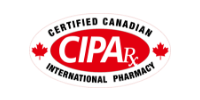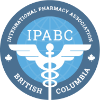Table of contents:
Indications
Zetonna nasal aerosol is a medication used to treat nasal symptoms caused by seasonal allergies and perennial allergic rhinitis. It contains the active ingredient ciclesonide, which is a corticosteroid that works by reducing inflammation in the nasal passages.
Patients should read the patient information leaflet carefully before using Zetonna and should follow the instructions provided by their doctor or pharmacist. Zetonna is available by prescription, may be covered by Medicare, and other insurance plans.
Use and Dosage
Zetonna comes in a metered-dose nasal aerosol form and is typically used once a day with one spray in each nostril. It should be administered in the nose as directed by your doctor, usually once a day in both nostrils.
Before your first use, gently shake Zetonna and prime it with 3 sprays into the air, away from your face. Prime again whenever the nasal spray has not been used in longer than 10 days. If it has been dropped, spray it just once into the air before use. You should shake Zetonna gently before each use.
To use the Zetonna nasal spray:
- With your head upright insert the tip of bottle into the nostril and press your other nostril closed. Breathe in and spray the medicine into your nose. Use in your other nostril if directed.
- If the spray gets in your eyes or mouth or on your skin, rinse with water.
- Do not blow your nose for a few minutes. Do not use the nasal spray more than 1 time in 24 hours.
Do not use more than 1 spray in each nostril daily, as it may increase the risk of side effects. After priming the canister, it should only contain 60 doses or sprays. Do not wash or put any part of the Zetonna nasal spray in water.
Side Effects
Common Side Effects of Zetonna Nasal Aerosol (Ciclesonide):
- Eye problems such as cataracts and glaucoma
- Headache
- Increased risk of infection
- Nasal septal perforation
- Nasal ulcers
- Nosebleeds
- Slow wound healing and
- Thrush
Serious Side Effects of Zetonna Nasal Aerosol (Ciclesonide):
- Anxiety
- Blurred vision
- Body aches
- Changes in sexual function
- Chills
- Crusting inside the nose
- Depression
- Diarrhea
- Difficulty breathing
- Eye pain
- Fever
- Hives
- Increase body hair
- Irregular menstrual periods
- Irritableness
- Lightheadedness
- Loss of appetite
- Muscle weakness
- Nausea
- Runny or bloody nose
- Seeing halos around lights
- Slow wound healing
- Sores or white patches in or around your nostrils
- Swelling of your face lips tongue or throat
- Thinning skin
- Tiredness
- Tunnel vision
- Vomiting
- Weakness
- Weight gain (especially in your face or your upper back and torso)
- Weight loss
- Whistling sound when you breathe
- Worsening tiredness
- Serious eye symptoms such as: sudden vision loss, blurred vision, tunnel vision, eye pain or swelling, or seeing halos around lights
- Serious heart symptoms such as: fast, irregular, or pounding heartbeats; fluttering in your chest; shortness of breath; and sudden dizziness, lightheadedness, or passing out
- Severe headache, confusion, slurred speech, arm or leg weakness, trouble walking, loss of coordination, feeling unsteady, very stiff muscles, high fever, profuse sweating, or tremors
Forms and Strengths
Zetonna Nasal Aerosol (Ciclesonide) is available in the following forms and strength:
Zetonna Nasal Aerosol: Inhaler
- 37mcg
Cautions
- Ciclesonide should only be used under the guidance of a healthcare professional.
- Zetonna may not be suitable for patients with certain medical conditions, such as tuberculosis, herpes simplex infection of the eye, or untreated fungal, bacterial, or viral infections.
- Patients should inform their doctor if they are pregnant, planning to become pregnant, or breastfeeding before using Zetonna.
- Ciclesonide may interact with other medications, so patients should inform their doctor of all medications they are taking before using Ciclesonide.
- Patients who experience symptoms such as increased nasal congestion, pain or pressure in the face or sinuses, or fever while using Zetonna should contact their doctor as it could indicate a possible infection.
- Patients should use caution when driving or operating machinery, as Zetonna may cause dizziness or drowsiness.
- Zetonna may increase the risk of glaucoma or cataracts, so patients with a history of these conditions should be monitored closely while using Ciclesonide.
- Patients should inform their doctor if they have a history of nasal or sinus surgery, nasal injuries or trauma, or nasal ulcers before using Zetonna.
- Zetonna may suppress the immune system, increasing the risk of infections. Patients should avoid contact with people who have contagious infections such as chickenpox or measles while using Zetonna.
- Patients who have active or inactive tuberculosis should only use Zetonna with extreme caution, as Ciclesonide can worsen the condition.
- The safety and effectiveness of Zetonna in children under 12 years of age have not been established. Pediatric patients using Ciclesonide should be monitored closely by a healthcare professional.
- Patients should not stop using Zetonna abruptly, as it can cause withdrawal symptoms. Follow the doctor's instructions for gradual discontinuation of the medication.
Frequently Asked Questions (FAQ)
Is Zetonna safe for use in children?
The safety and effectiveness of Zetonna in children under 12 years of age have not been established. Pediatric patients using Ciclesonide should be monitored closely by a healthcare professional.
Does Zetonna interact with other medications?
Zetonna may interact with other medications, so patients should inform their doctor of all medications they are taking before using Ciclesonide.
How often should Zetonna Nasal Aerosol be used?
The recommended dose of Zetonna Nasal Aerosol is one spray in each nostril once daily. The maximum dose should not exceed two sprays in each nostril per day.
Resources
It's important to purchase Zetonna Nasal Aerosol from verified Canadian pharmacy.







REVIEWS